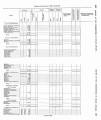| OCR Text |
Show of it, and held that the Indianshadno usufructuary or other rights therein which were to he in any manner respected, they, the United States, were nuder no obligations to treat with the Indians occupying the same for the extinguishment of their title. The whole number in the State is estimated at twent,y-five thousand. Routtcl 1'alk.y reiervation, in the northeast port of the State, eontain-inp twcnrg-tivc thousand acres, mas tholight to be, wheu selected. cio is~~latcods to forbid its ever being tlesirahle to the whites, aud therefore pe<:nli;lrlyv ulu:~blcf or ludian uac; bnt, possessing n very fertile soil and walnbrioas cliulate, it sec:ms that the Indians are nut to b ~s.e cured in uuiurerrupted, i~uaceliilo ceuvancv, f i~trie trler\i harc since toliel! ~ t ows - sion of some octhe best po<tionk'thus set apart, who think t6at the reservation is not a permanent one by the mere act of withdrawing the land from public sale. Legislation by Congress is 'ecommended for the definite establishment of the boundaries of the reservation, and the adjustment forever of claims of the settlers. The new superintendent, General McIi~toshU, nited States Army, is of the opinion that the whole valley should be reserved for Indian purposes, as it would be large enough to accommodate all the Indians in the northern part of Califor-nia, and render unnecessary the continuance of Hoopa Valley reser-vation. The mill property here, owned by Mr. Andrew Gray, has been recently purchased for the sum of $9,395 90, Congress having appropri-ated for that objeet $10,000, thus extinguishing the only title held by any one to laud in Ronde Valley. The tribes in charge are the Cow Cows, Pitt Rivers, Ukies,,Redwoods, and Wylackies, numbering one thousand and twenty-two, sk~lleciln ail kinds of farm work, and raising more than a sufficiencv for their subsistence. The sumlns ot' the crovs raised. if sold, rronltI"f~voidm~o ney enough to obtain dl1 the blanket; and cloi11- iug tlteg ueed. Then! i~ no school amoup them, nor do the,. scelu very desirous to have any. Hoopa Valley reservation, on Trinity River, in thenorthwestpart of the State, has an area of about thirty-eight thousand acres, and the valley is estimated to eontain about twenty-five hundred acres of arable land. With the assistance of the Smith River reservation Indians, who are industrious and experienced in farm operations, a much larger crop of grain and vegetables has been raised than ever before produced in the vallev. estimated to be worth about $28.000 in coin. The reservation is ulidGr'a f i ~s~tarte of cult~vnt~oaund iigiils pro~perou~an, d the Indians, ~lu~l~berailuloau t one rhundnnd. nre orclerlv ancl contented-a derided imnrovem&t over the state of aifairs with them a vear or two aco. when difi;eusions and blootlsht~dp rerailed u, a great extent. There I;.;; nercr bem allv school estuMisl~eda rnollc them, for the reason that 1111 hurls have been specially appropriated for that'purpose, and they have never manifested any particular desire to have their ehilden instructed. Tule River reservation, in a valley of the river of that name, in the southern art of the State. contains 1.280 acres of lmd. leased from F. P. >ladde'n, at $l.!PL0 per a;u~~rn; also; fire hundred ncr& of foverllmeut land al!ioiuing. The ludi~nsu pon it are those brotight Rome teu year8 aeo from the'Teion reservation or farm.which was afthat time sufrend- &ed to its owner, and they were then known as the Tnle and Owen's Eiver tribes. The lease expires in December next, and Mr. Madden has given notice that the rent will be increased to two dollars per acre. My predecessor recommended that this farm be purchased, and an estimate therefor was submitted to Congress of one dollar per acre in coin. As it may be expedient to remove these Indians to another reservation, I do not feel disposed to press the purchase at this time. The Indians |



























































